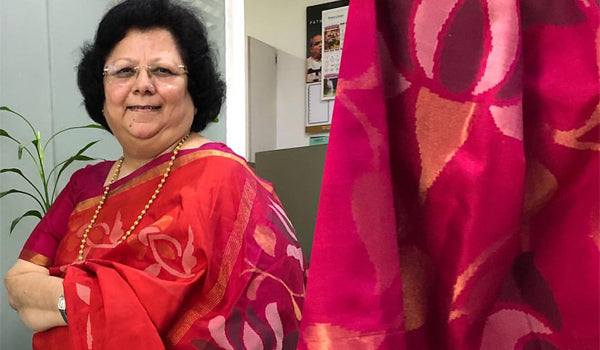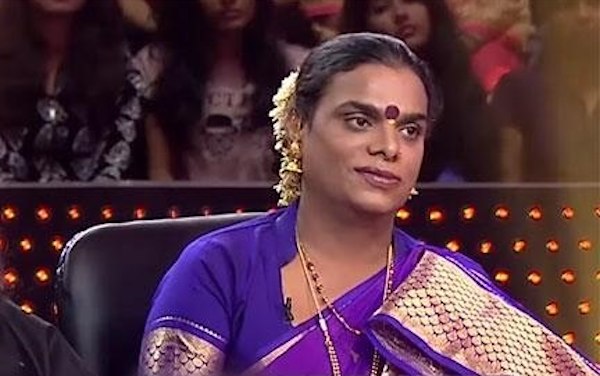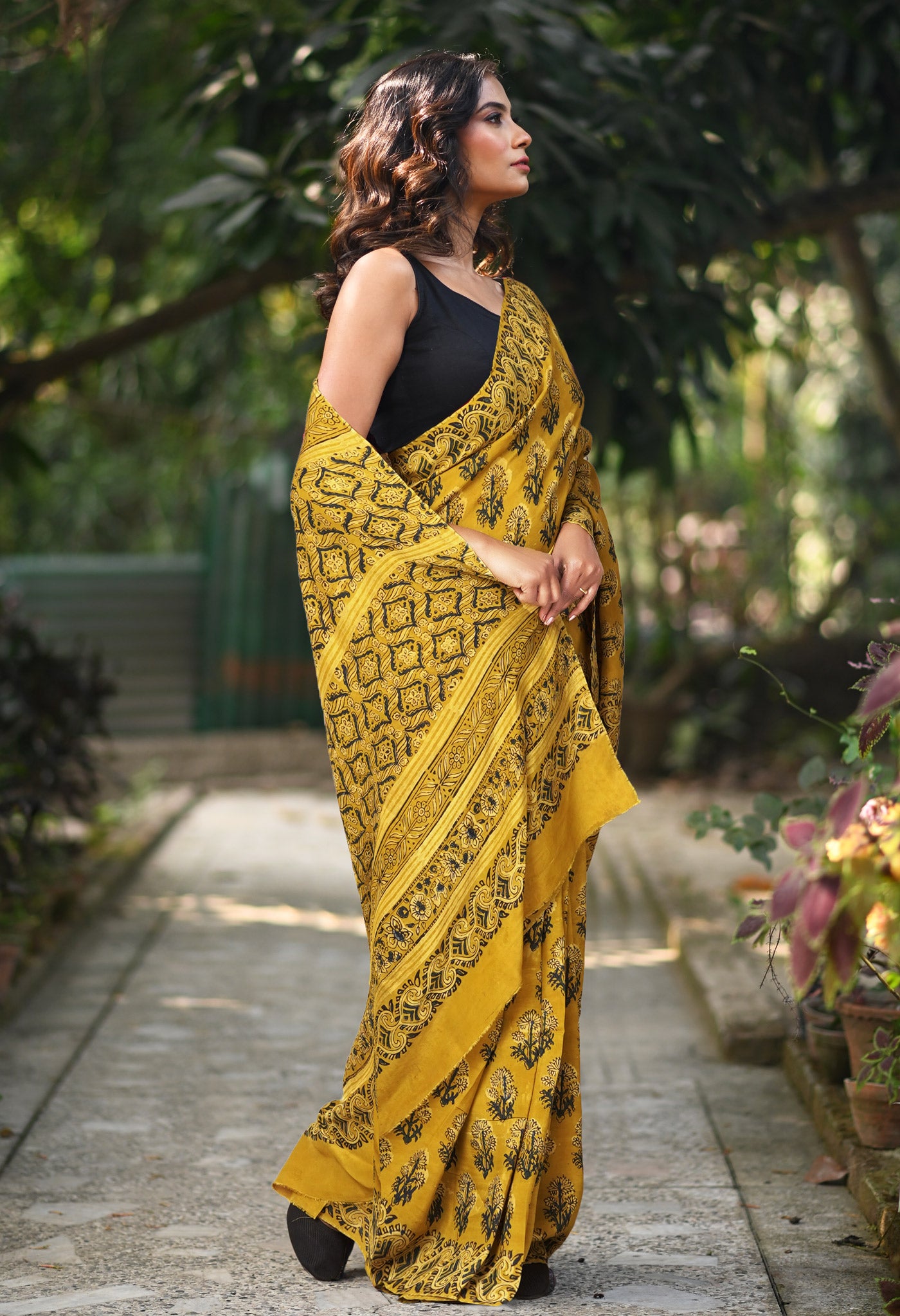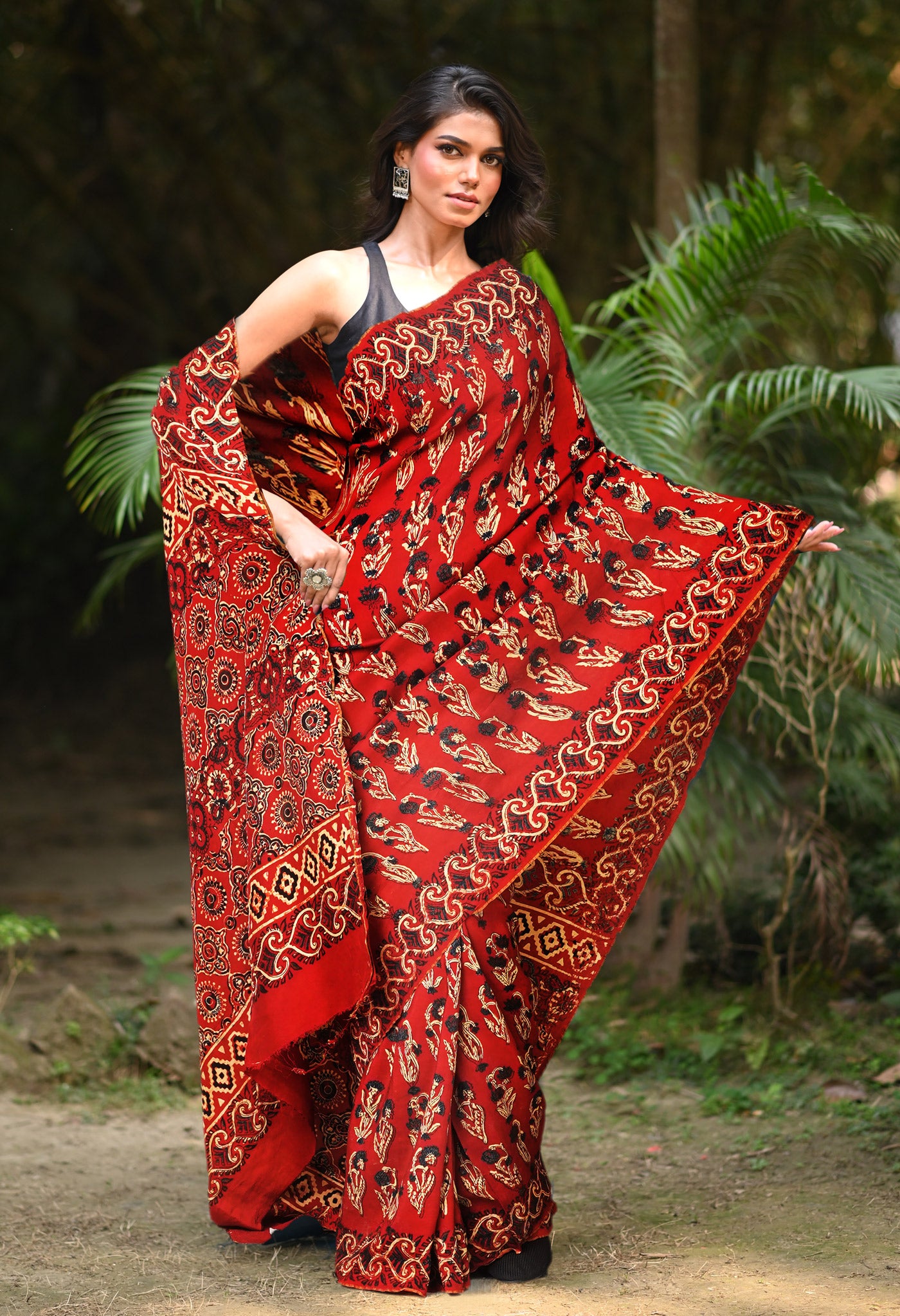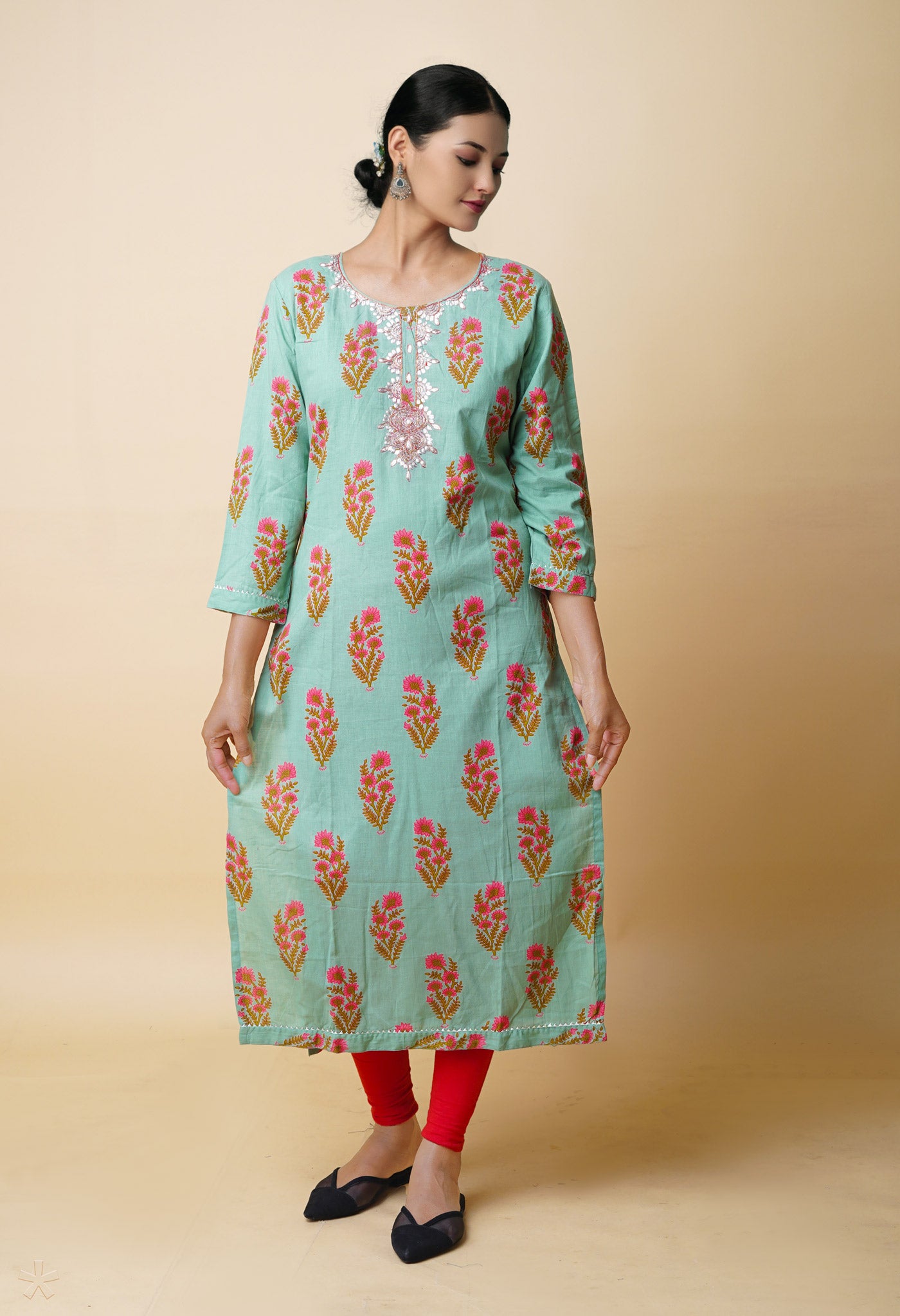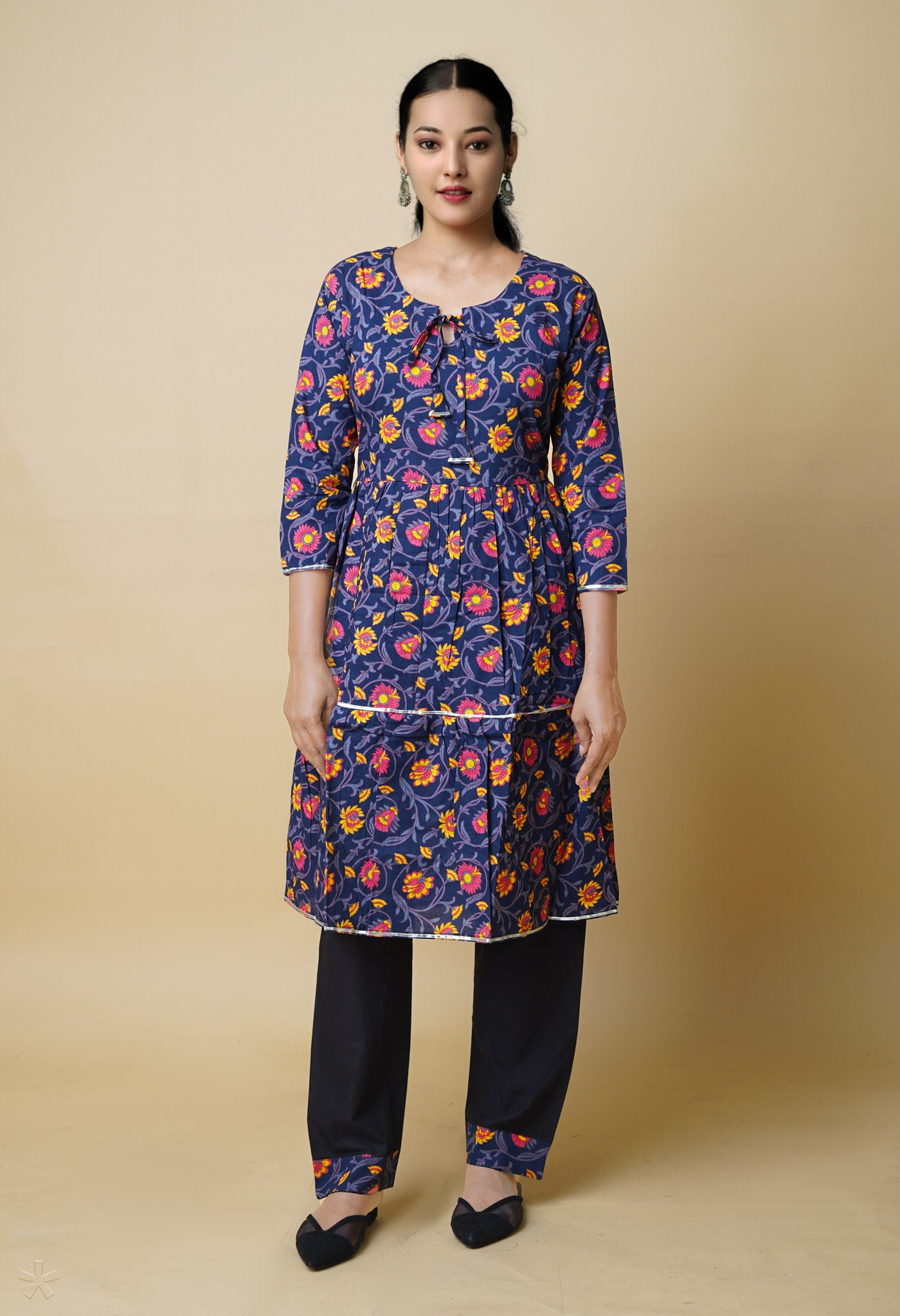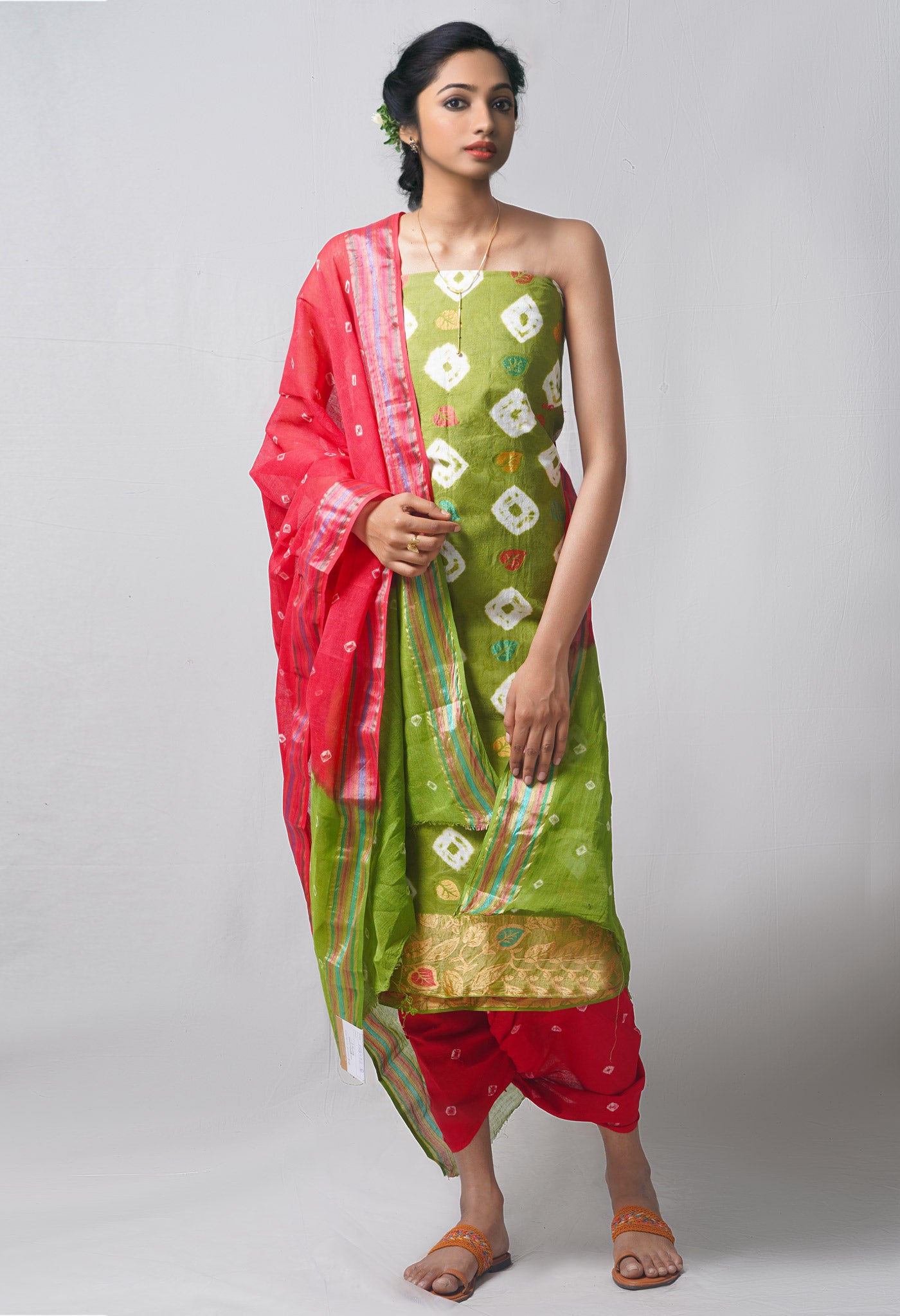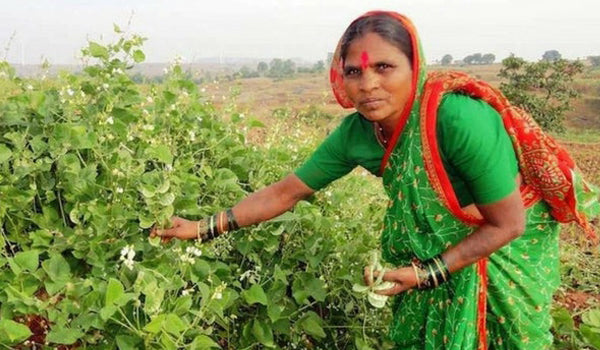
Rahibai Soma Popere – The ‘Seed Mother’ for her farming community
“Achievement seems to be connected with action. Successful men and women keep moving. They simply don’t quit.”
A quote slightly modified, seems apt to say for wonder-woman Rahibai Soma Popere. Hailing from Kombhalne village in Maharashtra,India, Rahibai, in her fifties, has done what she has so far without so much as a bugle sounding on her achievements. In fact despite her humble background she has accomplished what the vast majority even with privileged backgrounds can hardly hope to achieve of extraordinary worth in their lifetime.

Let us then get to know Rahibai Soma Popere better!
An effort that paid off
It all began when Rahibai and her seven member family migrated to Akole Taluk of Aurangabad dist. of Maharashtra. While the family took to farming during the rainy months, the remaining months went in work at the sugar factory as labourers.
It was then that Rahibai concentrated on three of the seven acres of land that they had. They lavished all the care and toil given a loved one on three acres from that. She must have seen during her earlier days and being a quick learner picked up certain home truths about the land and what measures were essential to make the land deliver good yields.
Using her initiative and from whatever she knew, she created water bodies like a farm pond and a traditional ‘Jalkund’. Two acres of the earlier thought unproductive land began to yield well and from the vegetables that grew on it, she started earning income.
Further to this, seeing her enthusiasm, she got help from the Maharashtra Institute of Technology Transfer for Rural Areas (MITTRA)to rear poultry and later even developed a nursery. Over time she became skilled in the four step method of paddy-cultivation with yields getting to be 30 % more than conventional yields.

Native variety seeds – a boon to successive yields
Even today when she has a huge wealth of experience, Rahibai does with single-minded devotion the kind act of conserving indigenous seeds for she knows the worth of native crop varieties.
- Based on her experience she is able to say with authority that Native crop varieties are not only drought and disease resistant, but are nutritive and retain the soil fertility as they do not need chemical fertilisers and excessive water. In fact Yogesh Navale, an associate of Popere who works for the BAIF Development Research Foundation agrees to say, “Native seeds have several advantages when compared to synthetic seeds. The most important benefit is that they require far less water for cultivation. Further, they have a higher tolerance to heat or drought-like conditions, a lesser amount of fertilizer or insecticides are required to sustain them and they are inexpensive when compared to seeds sold by big companies”. Those who have worked with Popere say that native seeds are far more resilient than certain types currently on sale across the country.
- Another aspect that is observed is the conservation of native seeds is important to help prevent the exploitation of already distressed farmers. Native crops are likely to become extinct as large seed companies promote and patent hybrid seeds. What happens is that farmers often become dependent on these companies for seeds as these cannot be saved for the next sowing season. In such a context, the conservation of native crops becomes paramount to ensure genetic diversity and the welfare of farmers and consumers.

Learning from experience
- The selection and conservation of good seeds are central to sustainable agriculture and global food security.
- Recognizing the need to save landraces, Rahibai has conserved several native crops including 15 varieties of rice, nine varieties of pigeon pea and 60 varieties of vegetables, besides many oilseeds.
- Her advice to the community is to keep farm chemicals away. “Villagers were falling sick frequently after eating food prepared from hybrid crops,” Rahibai says. She understood that the nutritive value of traditional seeds was much higher than that of hybrid seeds.
- Creating her own methods to harvest water on farms; she has been turning wasteland into space that she can use productively.
Transfer of knowledge to others
But she does not rest at simply doing good for herself. She believes in disseminating what life has taught her to the farming community she comes in contact with, to those agreeable to her logic and accepting her farming techniques.
Besides conserving seeds, she spreads awareness about the importance of organic farming, conserving indigenous seeds, agro-biodiversity and wild food resources. Rahibai has a humble yet typical confidence while talking about her expertise, and having tasted success after putting her techniques into real practice, she often offers training to farmers and students on the subjects of selecting seeds, soil fertility improvement, pest management and control.

After successfully implementing all that she learnt, Rahibai now trains farmers and students on seed selection, techniques to improve soil fertility and pest management among others. She supplies farmers with seedlings of native crops, encouraging them to switch to native varieties. Having experienced the benefits of growing native crops, Rahibai wants more farmers to start farming on similar lines.
Rahibai spends most of her time training farmers from across the state in the use of traditional farming and irrigation techniques — measures she believes will help crop growers mitigate the impact of climate change, and focus on native species of seeds.

Formation of self-help groups
Rahibai was not content that she reap the fruits of her efforts alone. She wished all in the community to benefit from what she knew and reaped from. So she started collecting local seeds with the help of other women farmers from Akole taluk in Ahmednagar district of Maharashtra. She formed a self-help group (SHG) named Kalsubai Parisar Biyanee Samvardhan Samiti to conserve native seeds.
Rahibai now also heads another SHG, Chemdeobaba Mahila Bachat Gat in Kombhalne, through which many social initiatives such as health camps and solar lamp supplies are organised, besides the agricultural initiatives.
Besides she helps other farmers return to native varieties of crops, preparing hyacinth beans for self-help groups.
The recognition and awards for her fruitful journey
Fate bestows its kind rewards on a life that has led a journey marked with silent achievement, one that selflessly strove to benefit others of her ilk as well from whatever beneficial knowledge she possessed.
Meanwhile humankind also strove to laud her merit in its own way.
- She was felicitated with The Best Seed Saver award by Krishi Vidgyan Kendra, Bhableshwar.
- She received BAIF‟s Best Farmer Award,2014-15. BAIF is a non-political, secular and professionally managed organization in Pune, that pioneers agricultural development. It was founded in 1967 by Manibhai Desai as the Bharatiya Agro Industries Foundation.
- In January 2015, she received appreciation from Prem Mathur, Honorary Research Fellow at Bioversity International and from R. R. Hanchinal, Chairperson of a government body for the protection of plant varieties and farmers' rights in India.

- MPKV Rahuri scientist team visited her hyacinth bean diversity Centre.
- Raghunath Mashelkar, the erstwhile Director General of the Council of Scientific and Industrial Research gave her the epithet 'Seed Mother'.
- She is among three Indians on the BBC list of "100 Women 2018".
- She received Nari Shakti Puraskar, 2018, instituted by the Ministry of Women and Child Development, Government of India.

Why what she keeps doing is great
- She has established a seed bank. Farmers are given seeds with the condition that they return twice the quantity of seeds they borrowed! Naturally this puts those that adhere to this condition on the track of self-sufficiency.
- The seed bank distributes 122 varieties of 32 crops. Before the seed bank was established, farmers used to buy hybrid seeds, often on borrowed money. “If we use indigenous seeds and stop using chemical fertilizers, we can save almost Rs 5,000 a year,” the farmers who benefited claimed.
- Rahibai has applied for registration in Protection of Plant Varieties & Farmers’ Rights Authority, India (PPV & FRA) under Farmers’ Varieties. To promote the cause of conservation of landraces, she participates in programs such as the Indo-German Bilateral Co-operation in Seed Sector, organised by PPV &FRA, besides local seed and agriculture fairs.
- Rahibai wants to conserve and promote sustainable use of 250 varieties of different crops. To ensure nutritional security of tribal families, Rahibai plans to help 25,000 households establish kitchen gardens.
- While Rahibai’s efforts are making a visible impact at the district and state level, it is an immense contribution towards genetic diversity in the country’s agricultural sector.

- Popere focuses on women-led agro-biodiversity. She has conserved almost fifty acres of ingenious farmland, where she grows 17 different crops. She was visited by the BAIF Development Research Foundation in 2017, who found the gardens she supported had enough produce to meet the dietary requirements of a family for a whole year.
- She has developed a series of hyacinth beans for self-help groups and families in nearby villages.
- Rahibai has the distinction of conserving and multiplying 48 indigenous landraces of 17 different crops including paddy, hyacinth bean, millets, pulses, and oilseeds.
- The knowledge passed down from her forefathers, along with her own experience, have helped many eschew use of synthetic or genetically modified seeds in several rural areas.
- She is creating awareness in Women for participation in the Self-Help movement, Village sanitation, clean kitchen, Seed Conservation and wild food exhibitions.
- She started with a nursery of Black berry (4000 seedlings). She then established a nursery of hyacinth beans (9 types)-5000 seedlings, Rice, vegetables, Beans landraces and shared them with 210 farmers in 7 villages of Akole Block.
It is souls like Rahibai Soma Popere that bring smiles on weary faces when she expounds on the importance of continuation of natural varieties of seeds and not fall prey to false claims of hybrid seeds that promise a lot but deliver paltry. It’s this groundbreaking work that was celebrated at the Kirloskar Vasundhara International Film Festival. Popere was honoured at the opening of the event.
May God give the 54 year old the energy and drive to continue her untiring efforts as long as she wishes so that generations upon generations of the farming community could reap dividends from adopting her amazingly simple and logical ways that have confounded many an agricultural Pundit.

